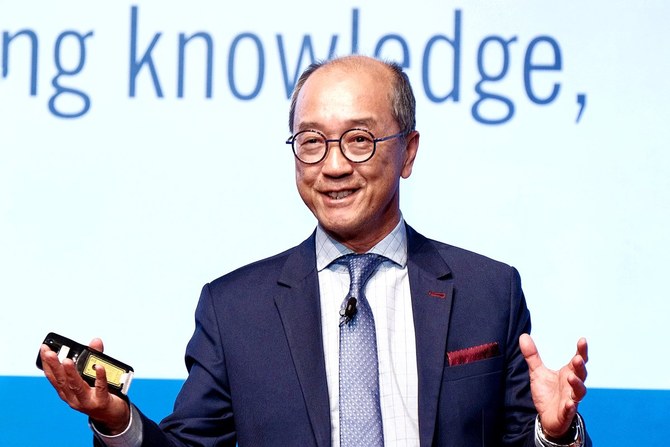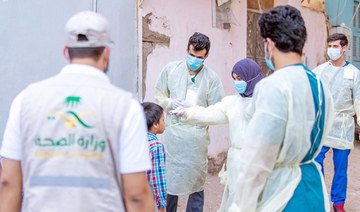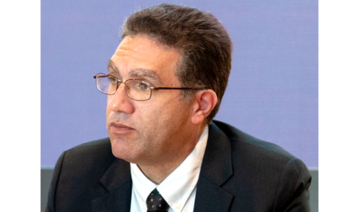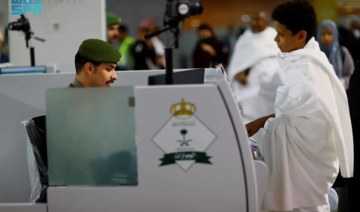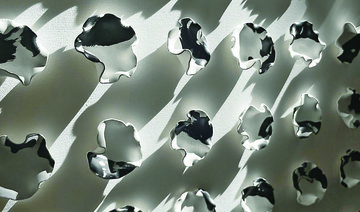JEDDAH: A Saudi university is helping lead the global fight against the coronavirus disease (COVID-19) pandemic.
Experts from King Abdullah University of Science and Technology (KAUST) are collaborating with the Saudi Ministry of Health and other government entities on research projects vital to preventing the spread of the killer virus.
A specialist rapid research response team (R3T) set up by the university has been working to provide face-shield and ventilator prototypes with manufacturing partners McLaren and Olayan Group, respectively.
And it is also contributing to initiatives taking place throughout the world to find ways of combating the deadly COVID-19 outbreak.
KAUST President Dr. Tony Chan told Arab News how KAUST’s research community had come together to offer its expertise on a number of fronts.
“Within the first week of the outbreak, a number of our established scientists and researchers presented project proposals in their own respected fields, all working on different aspects.
“We are not a pharmaceutical company or a hospital, but we have the means and capabilities to help the national and international response in other ways,” he said.
Many of the projects underway have brought together researchers from some of the world’s top academic institutions, biotech companies, research centers, hospitals, and health ministries.
KAUST’s team is one of many university and research centers that are harnessing a whole breadth of knowledge to answer critical questions about the spread of COVID-19, how to prevent it, and the best ways to treat the infection.
In the short term, the R3T’s work to develop face shields and ventilators is already having an impact.
“Our way of answering the call was to design our own components for the face shields and ventilators,” said Chan. “The face-shield prototype is for frontline staff to use. A prototype has been sent to the National Guard Hospital (in Jeddah) for use in the medical center and we may deploy it in other hospitals.”
He added that the global supply for ventilator systems had been increasing with the rising number of infections.
“KAUST’s R3T has joined the global effort to provide a fast and effective solution by working on the design and prototyping of mechanical actuators using Ambu (artificial manual breathing unit) bags. These are self-inflating bags used globally to provide positive pressure ventilation to patients who are not breathing or not breathing adequately.”
Chan noted R3T’s partnership with the Saudi Centers for Disease Control and Prevention (CDC) and the Ministry of Health in coordinating efforts and exchanging expertise to ensure fast and reliable diagnostic tests and optimize existing tests.
“On the diagnostic and therapeutic front, there are three areas we’d like to address. The first would be contributing to the global mapping of SARS-CoV-2 (the virus strain that causes COVID-19) virus genome and its genetic code. The second would be the improvement of drug development, and the third is working on the ramping up of serological testing for improved detection,” he said.
The combination of the university’s resources, its faculty expertise and developers, and the research projects put forward by the R3T, would not only contribute to the immediate global fight against COVID-19 but also future joint research projects into the disease and to tackle several issues at once, Chan added.
One way of doing that was by detecting the global genetic signatures of the SARS-CoV-2 virus in order to help scientists around the world understand how the virus changed over time, and the best means for both diagnostics and treatment.
Headed by Prof. Arnab Pain, the KAUST team will be comparing the genomes of the virus circulating in the Kingdom and comparing them in the global population where they can systematically track any mutation in the genetic material from the start of the pandemic.
A number of COVID-19 publications have already been released by KAUST researchers along with the R3T’s projects that tackle the subject on several fronts.
From working to support and improve pandemic preparedness with reagents, to exploring treatment options for the disease, Chan said the team was committed to tackling COVID-19.



